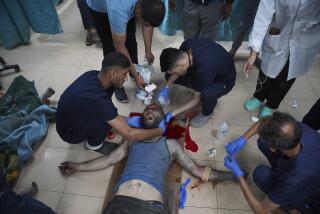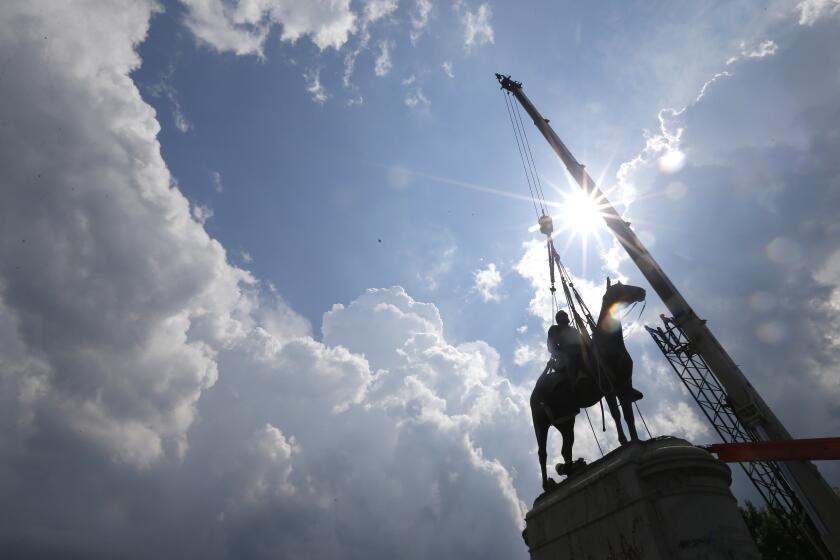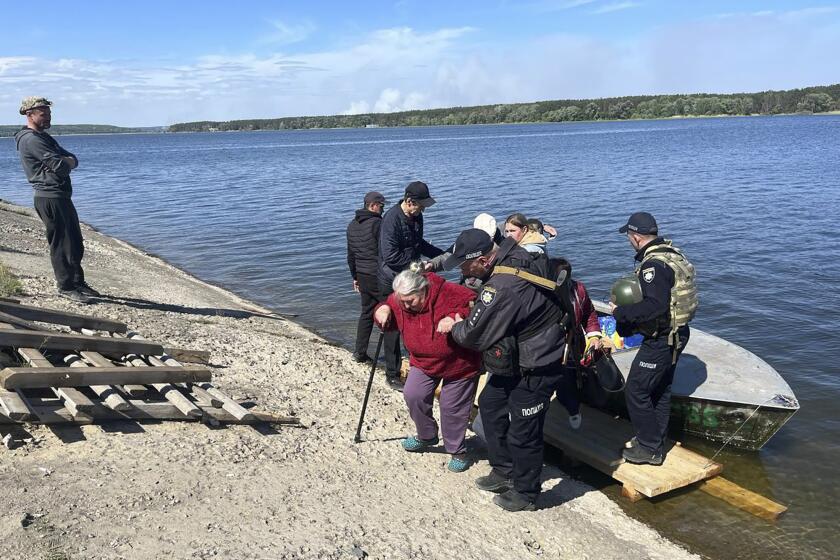RELIEF AID : Charitable Effort for Iraq: It’s a Hard Sell Today : Fund-raisers shun politics, concentrating on the need of Saddam Hussein’s suffering subjects for food and medicine.
Aside from marketing leftover savings and loan junk bonds, one of the hardest sells in recession-ravaged America is raising money for Saddam Hussein’s Iraq.
Iraqi-Americans trying to organize humanitarian relief for their homeland have learned that it’s best not to discuss the politics of the situation. Leaders of the effort in Detroit, the nation’s largest concentration of Iraqi-Americans, as well as in Southern California and Houston stick to the same basic script: Food and medical supplies are desperately short, and unless U.N. sanctions are lifted soon, the children of Iraq will suffer permanent health damage.
Privately, those who go beyond humanitarian issues are critical, as are many other Americans, about the failure of Operation Desert Storm, the U.S.-led military campaign that dislodged President Hussein from Kuwait, to remove him from power completely.
Lamenting President Bush’s disinclination to go “all the way,” one Iraqi-born American said: “But I know why he didn’t--because the Administration didn’t have anybody to replace him (Hussein).”
Several Iraqi-Americans who were interviewed agreed that Hussein and his top political and military echelon will remain immune to U.N. sanctions but that the general population will certainly suffer.
“You have no idea how bad it is,” said Bishop Ibraham Ibrahim of the Chaldean Catholic Church in a telephone interview from his Detroit headquarters, speaking about a visit he made to his homeland in July. “The people are starving.”
The bishop is seeking to send his church’s fourth aid mission to Iraq, following up a first delivery of food and medicine immediately after combat ceased last March.
“Right now, it’s a drive for powdered milk,” he said.
On the political side, Faisal Arabo, a Detroit radio broadcaster, is part of a campaign to persuade Congress to release more than $1 billion in Iraqi assets frozen in this country since the U.N. Security Council called on member states to impose sanctions in response to Iraq’s invasion of Kuwait. The campaign is also pressing the Security Council to raise a $1.6-billion ceiling put on Iraqi oil sales to finance imports of food and medicine.
“Our strategy is to tell the United Nations that food and medicine will not solve the problem,” Arabo said. “Unless you have money to repair the infrastructure, you can’t produce enough oil. Unless the infrastructure is rebuilt, food is really useless.”
Arabo acknowledges that Sen. Carl Levin (D-Mich.), who represents many Iraqi-Americans, has stuck to the position that as long as Hussein remains in power, he will represent a threat to U.S. security.
“We argue with him and other members of Congress that President Bush has stated on many occasions that we have destroyed all of Iraq’s nuclear capability and its conventional arms will not be a threat for years to come,” Arabo said. “Somebody’s got to be wrong on this.”
Two Iraqi-Americans, psychologist Abraham Lutfi of Los Angeles and Riadh Khudhiry, a Houston engineer, who went to Iraq in October, 1990, and escorted 14 U.S. hostages to the United States, are members of the national network seeking aid for their former countrymen.
The pair returned to Iraq immediately after fighting ceased and were shaken by the devastation, Khudhiry said.
Lutfi said he is concerned about the long-term effect of the strategy of squeezing the population to bring about political change in Iraq.
“The Iraqi government--whatever they need, they have,” he said. “The suffering party is the people, and eventually, when we need their support, how are they going to trust us? A child living through this, when he becomes president of Iraq, how is he going to feel?”
More to Read
Start your day right
Sign up for Essential California for news, features and recommendations from the L.A. Times and beyond in your inbox six days a week.
You may occasionally receive promotional content from the Los Angeles Times.






